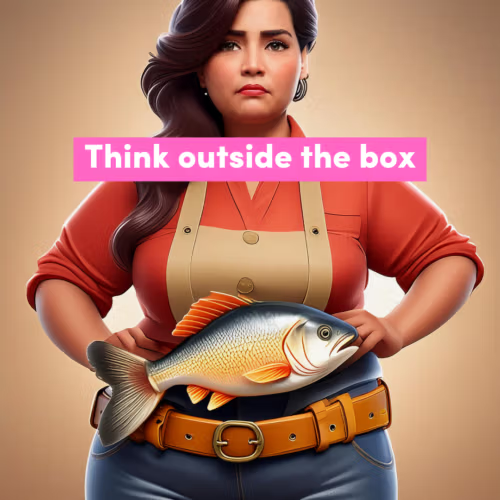Great health is every person’s birthright, with some of us energetic, glowing and vibrant and others in a daily battle with our own bodies and minds. Headaches, period pain, overeating, allergies, bloating.
Our daily routines can make a huge difference in how vibrant we feel. Daily choices based on a connection to body, mind, and spirit lead to good health, stable mood, and restful sleep.
These 12 tips are relatively straightforward; however, each of us has to make mindful adjustments to our daily lives to create new habits.
After working with women for over a decade and asking them deep questions about their health, there are 12 habits I’ve found to look and feel younger and more energetic.
#1. A healthy woman makes time for herself
Explore! Do the things you love! After working with so many women, it has become clear that most of us have too much on our plates, and stress is a major factor contributing to being unwell.
Ensuring your schedule allows time for rest is key to being well. Stress seems to be some misplaced badge of honour, with overworking and overcaring for others being the norm. This overdoing doesn’t leave any time for pleasure and relaxation.
Women are taught that they can ‘multitask’ with ease and that doing everything without skipping a beat is normal. It’s not. It’s stressful.
Ask yourself honestly:
- Do you regularly feel like there aren’t enough hours in a day to complete your tasks?
- Do you have brain fog?
- Are you anxious about running late for everything?
If so, you’re doing too much!
When women are asked what they do to have fun each day, it becomes sadly clear that it’s been months or even years, sometimes, since they took a break.
When working with women in poor health, the first thing to address is the daily stressors they deal with.
Why? Because chronic stress causes:
- Insomnia
- Digestive problems
- Adrenal overload
- Hormonal issues
- Autoimmune disease
We tend to put busier, more successful women on a pedestal, but remember, the healthy woman understands balance. She’s not obsessed with work, exercise or health; she enjoys taking a true rest and uses rewards judiciously.
Life has so much potential for fun; healthy women seek adventure and joy, whether at home or out in the world. Making time each day for yourself helps you feel optimistic about yourself and your life and brings that confidence and cheer to your friendships, family, and work.
Having fun is good for your health. When did you laugh until you cried last? When did you go out in nature and marvel at something?
#2. A healthy woman is food-savvy
Nutrition is a huge topic, and there is a lot of information floating around about what is and isn’t ‘healthy’. Learning to tell what a marketing ploy is and what good information is is important for making good choices.
What might be healthy food for one person is not necessarily healthy for another, so if you have an underlying health condition or know you have food intolerances, get educated and seek professional support if needed.
Avoiding fads and untrained advisers
Be wary of the latest TikTok fad or young, untrained Instagram influencers giving health advice or doing paid promotions. There’s fun in new things – see #1! – but if you’re going to spend time and money and bank your health on it, make it worth it. What works for your best friend may be worse than unhelpful for you.
Your body is pretty clever, so listen to it regarding nutrition! Note how you feel every day. Are you high energy? Happy? Are certain days better when you eat certain foods? Eating intuitively can be enormously helpful, so eat what makes you feel good, avoid what doesn’t, and do it more often.
If you’re not sure, schedule a consultation with a qualified, experienced naturopath, and we’ll help you.
Menstruation
If you’re menstruating, eating for your cycles can be important in terms of premenstrual symptoms (PMS) and improving your period experience. Keep track of your cycles and learn the importance of regular periods and which nutrients matter the most during this phase of the menstrual cycle.
Cosmetics
What is in your cosmetics? Our skin is our biggest organ, and underestimating its importance is a mistake. Any product you put on your skin is absorbed more or less into the blood. Healthy women learn about cosmetic ingredients and make changes as needed. Remember: skin care should be considered like food.
Do your homework and get qualified advice where you need to.
#3. A healthy woman prioritises sleep
We cannot be healthy without enough good-quality sleep1. While we sleep, our immune system rebuilds, we repair, and we digest.
A healthy woman has a regular bedtime routine and gets 7-8 hours of sleep most nights to start the next day energised.
Stress can interrupt sleep, as we delay and skip sleep to do other things on our lists. Poor sleep impacts energy levels, mood, and overall quality of life, and insomnia two to three times per week or more is too much. Settling for less when it comes to sleep will only result in less energy and health. Work out the source of the issue and get proper sleep.
Lack of sleep or poor quality sleep can cause:
- Brain fog
- Irritability, mood problems
- Under functioning immune system
- Hormone issues
- Weight fluctuations, obesity
- Cardiovascular disease
- Clumsiness, poor motor control, accidents, mistakes
Are you impacted by poor sleep? Some causes of sleep problems include:
- Irregular bedtime schedules
- Caffeine
- Alcohol
- Some medicines
- Eating after 8pm/too late
- Blue lights, screens
- Excess stimulation
- Exercising late
- The bedroom is not set up for sleep (not dark enough, pets, noise)
- Stress, anxiety, worry
- Hormone changes and issues
The first steps to good sleep are establishing a regular bedtime regime, turning your phone onto do not disturb/aeroplane mode, and avoiding any blue light or screens for at least an hour before bed.
Find good sleeping earplugs and a blackout eye mask if you need to.
Have a routine to calm down before bed, such as having a cup of chamomile tea or a warm bath, reading, stretching, or preparing for the following day—whatever works for you.
#4. A healthy woman enjoys daily exercise
We all know exercise is good for us, the research has been crystal clear over decades. Exercise helps us live longer and make those years healthier. In our clinical practice here at My Vagina, the healthy women we speak to prioritise exercise because it’s a reliable factor in feeling good.
Exercise reduces cortisol levels, releases feel-good endorphins, and helps increase energy levels. It also reduces high blood pressure, increases oxygen in tissues and the brain, and promotes bone, heart, and muscle health. Regular exercise also helps us sleep better.
Regular exercise is a known disease preventer1.
Stretching also has many benefits, so stretch each day to help stay flexible and reduce stiffness, aches, and pains. While yoga and pilates are useful, stretching at home or work during the day is also really helpful. You don’t need a class to stretch.
Exercise is not a punishment for eating! If you love F45, boot camp, and pushing yourself, go for it, but you don’t need to be Lara Croft or Xena. Exercise should be a joyful part of your day, so consider forms of exercise that don’t feel like work: joining a community sports team, walking a nature path, bicycle riding, or dancing. You can break up your exercise into 10-minute slots—there is no need to do it all at once.
Choose your most enjoyable exercise and go for it!
#5. A healthy woman listens to her body
Do you know what caused your headache before you took a pain pill? Sometimes, all you need is a stretch, an adjustment of posture, and a glass of water or some fresh air, and your headache will disappear.
Symptoms like headaches are your body communicating with you. Listen!
If you feel digestive discomfort after lunch today but not yesterday, why? It could be an anxiety-inducing event this morning, or something you ate that didn’t agree with you. Digestive discomfort, headaches, and aches are common messages our body sends us.
Interpreting these messages doesn’t require a PhD – it just requires paying attention and making adjustments for a smoother experience in your body.
If you’re having symptoms, start a diary and keep track of what you’re eating, how you’re sleeping, energy levels, bowels, and whatever else, and see what the patterns are.
If you can’t make heads or tails of your body, please reach out for help. We naturopaths can help you.
#6. A healthy woman eats a range foods
The healthy women we see use food as medicine, which means many different foods – each containing the nutrients we need. If you eat the same fruit and veg daily, perhaps it’s time to branch out.
It is useful to understand that there are about 40 different vegetables that a healthy woman eats, and eating with the seasons is wise. You say 40 vegetables? Here’s why.
Vitamins and minerals
Each vegetable contains many vitamins and minerals essential for your body to function properly. Nutrients build protein, blood, our immune system, hormones, and bone and make energy.
Phytonutrients
Plant nutrients above and beyond the vitamins and minerals, such as resveratrol, carotenoids and plant hormones, support good health in various ways. Herbs and spices are high in these plant nutrients – phytonutrients – along with foods such as berries.
Fibre
Fibre is in abundance in vegetables, helping support a healthy gut microbiome and a happy digestive system. If we’re not eating enough fibre, our gut microbiome can be thrown off and derail our health.
Crucierfous vegetables
One of the most favoured, healthful types of vegetables are cruciferous vegetables – broccoli, brussels sprouts, cabbage, kale – and many more. These vegetables are also known as brassicas. These vegetables are high in antioxidants and important liver-detoxifying substances, including sulfur.
If you’re unsure how to increase your veggie intake, learn to eat more plants.
Mushrooms
Mushrooms are also a very beneficial addition to your regular routine, with reishi and shiitake containing incredibly potent beta-glucans, which reduce inflammation and promote a healthy immune system. A couple of mushrooms added to a meal make the meal more medicinal.
Protein and fat
Protein and fat are also key to a healthy diet, and it’s advisable to ensure both at most meals.
Nuts, seeds, olive oil, coconut oil, oily fish (mackaral, sardines, salmon), and avocado are healthy fats.
Proteins to rotate are fish and seafood, grass-fed lean meats (beef, chicken, lamb, pork), and non-meat options like nuts, seeds, legumes (lentils, chickpeas/garbanzo beans, beans), tempeh and tofu.
#7. A healthy woman eats fresh, home-cooked meals
Taking the time to cook meals at home with fresh whole foods is a cornerstone feature of a healthy woman. The quality of a meal cooked at home with fresh ingredients is far superior to any other type of food for good health.
You decide what ingredients go in, and you can avoid artificial colours, flavours, and preservatives that can be harmful to your body.
Cooking is an important life skill, and while it’s not everyone’s favourite way to spend time, investing in the basics is a healthy choice. The internet is full of healthy recipes and amazing cooks who share their tricks and tips for free. Recipes are available for all skill levels.
If you’re starting out, be patient and start with easy, cheap, nutritious meals that won’t break the bank if you make a mistake. You’ll develop confidence and a collection of favourite recipes to fall back on.
Learning how to make your own meals taste amazing is where you will find joy in home cooking and eating.
#8. A healthy woman is organised
When you’re organised, eating well and making time for yourself in your schedule becomes far easier. For example, many healthy women I know eat Atlantic salmon with an easy salad as a go-to meal.
If you’re skipping breakfast because you don’t have time, make time to pack breakfast to take with you to eat when you’re hungry if it’s not first thing.
If you have the ingredients at hand, breakfast is easy. Prepare the night before, prep ingredients and save them in containers, or already have breakfast supplies at work.
Set the alarm 10 minutes earlier, spend a little less time on someone else, and work out how to feed yourself well. Breakfast is a very important start to the day for energy levels and blood sugar regulation.
A simple tip is to keep your fridge and pantry stocked with items that don’t go bad quickly to feed yourself healthy food without much effort: muesli, porridge, eggs, mushrooms, bread (even frozen bread for toast), yoghurt, nuts, oats, and some vegetables in a sealed container so they last longer.
Don’t forget your water bottle. Staying hydrated is one of the most important things you can do to feel good during the day. It’s difficult to notice what dehydration feels like, but you’ll be less clear and have less energy. Drink plenty of fluids during the day, including herbal teas and other liquids. It doesn’t just have to be water.
#9. A healthy woman doesn’t snack
Healthy women don’t snack—this has been shown to us over and over again. Women at a healthy weight don’t snack but instead eat two or three sustaining meals during the day.
‘Snacking’ isn’t the same as having a treat every now and again, but snacking between meals should be kept to a minimum for a healthy metabolism and weight. Snacking and blood sugar dysregulation can be detrimental for people with polycystic ovarian syndrome (PCOS), psoriasis, eczema and acne.
Constipation and other digestive symptoms can appear as the digestive system is constantly processing food. Give it food, then let it do its thing until it’s time to eat again.
#10. A healthy woman has a robust support network
Prioritising friendships and family is the hallmark of a healthy woman. Strong relationships and meaningful connections enhance our health in profound ways. We are social creatures, and strong bonds are healthy.
Loneliness is a modern epidemic with serious health implications2,3. If you need a friend or two, consider joining a sports club, a community activity like volunteering, tennis, lawn bowls, business networks, community gardening, a choir, or whatever you’re into.
Or, try something new – no need to stick to things you know. Join a class or group that meets regularly with lots of the same people attending, and your social network and opportunity for connection just tripled. If you’re not sure how to find something to do, ask your local council. Their job is to take care of the community, which includes you.
Pets are also a wonderful source of companionship and comfort and an opportunity to meet other people who have pets in common. Having a pet reduces stress, anxiety, depression and loneliness.
#11. A healthy woman is comfortable with herself
Emotional issues are a major cause of stress and poor health. Low confidence, poor self-esteem, and constant comparisons with others regarding looks, intelligence, weight, finances, and partners can hamper happiness.
If you’re living with symptoms you find really embarrassing, like bacterial vaginosis or chronic urinary tract infections, you may think you’re the only one. You’re not. These symptoms are common and treatable.
Healthy women love the body they’re in because it’s the only one they’ve got, and it does amazing things every day. It can be difficult to love a body that feels like it betrays you, with recurrent infections, acne or hormonal problems that you do your best to treat but seem to get nowhere. It can feel very demoralising.
Please schedule a consultation with one of My Vagina’s specialist naturopaths or another practitioner for support if your health is undermining your confidence. We can help.
At My Vagina, we work with many types of herbal and natural treatments that are not only for our physical bodies but also for our mental and emotional health. We are a single organism, and our feelings and thoughts are just as much symptoms as a cough or rash.
There are many incredible tools to help you.
#12. A healthy woman asks for help when she needs it
It’s far easier to fall into sickness than to get well, which is why preventing sickness is an important part of being a healthy woman. Developing healthy habits that nourish your body, mind and soul every day is key.
If you’re worried about something, asking for help sooner rather than later can avert a lot of stress. If you’re having daily health symptoms, get help—this is not normal. You should feel energised, bright, and light and generally be able to navigate your days with ease. You should be able to eat a lot of different sorts of foods without digestive issues.
Choose a great female doctor who understands women’s health well. Find a GP who will work with your naturopath and other care team practitioners who are open to you finding natural ways to manage your health.
Taking steps to being a healthy woman
You got this! If you’re not sure where to start, please book in with a My Vagina practitioner for help. We are experts in our field and can help get you on track for great health and being symptom free.
References
- 1.Gleeson M, Bishop NC, Stensel DJ, Lindley MR, Mastana SS, Nimmo MA. The anti-inflammatory effects of exercise: mechanisms and implications for the prevention and treatment of disease. Nat Rev Immunol. Published online August 5, 2011:607-615. doi:10.1038/nri3041
- 2.Barton S, Zovko A, Müller C, et al. A translational neuroscience perspective on loneliness: Narrative review focusing on social interaction, illness and oxytocin. Neuroscience & Biobehavioral Reviews. Published online May 2024:105734. doi:10.1016/j.neubiorev.2024.105734
- 3.Haslam SA, Haslam C, Cruwys T, et al. Tackling loneliness together: A three-tier social identity framework for social prescribing. Group Processes & Intergroup Relations. Published online April 30, 2024. doi:10.1177/13684302241242434
The most comprehensive vaginal microbiome test you can take at home, brought to you by world-leading vaginal microbiome scientists at Juno Bio.
Unique, comprehensive BV, AV and 'mystery bad vag' treatment guide, one-of-a-kind system, with effective, innovative treatments.
Promote and support a protective vaginal microbiome with tailored probiotic species.






